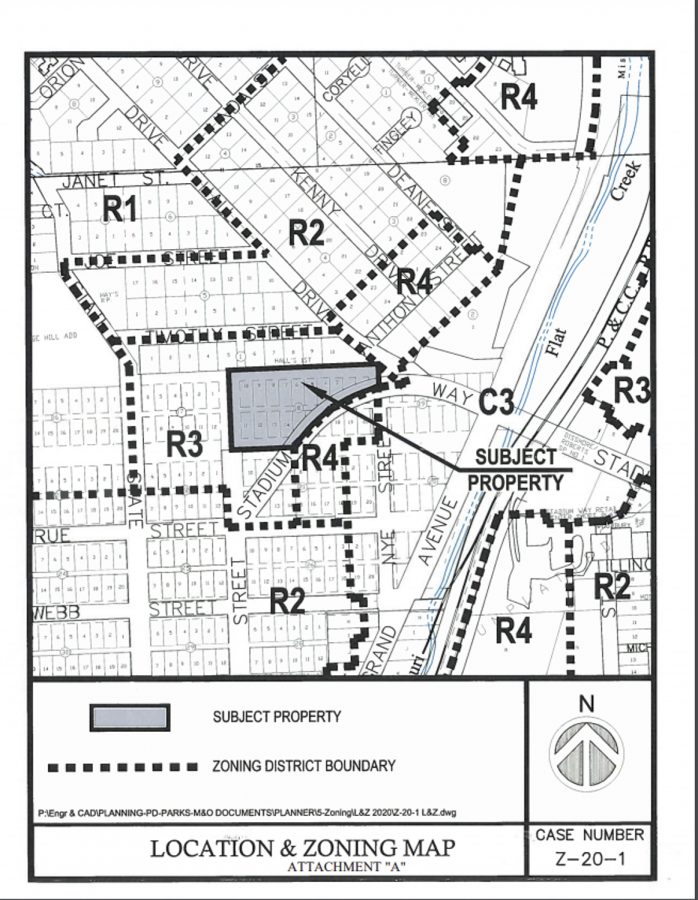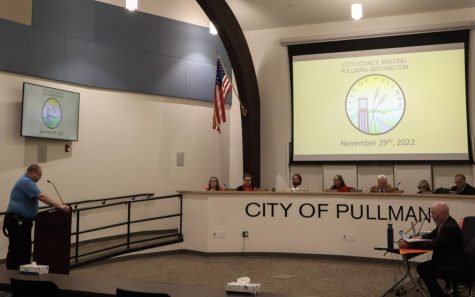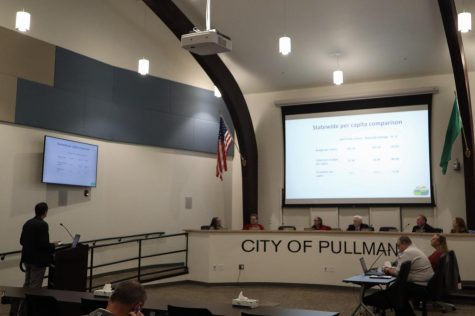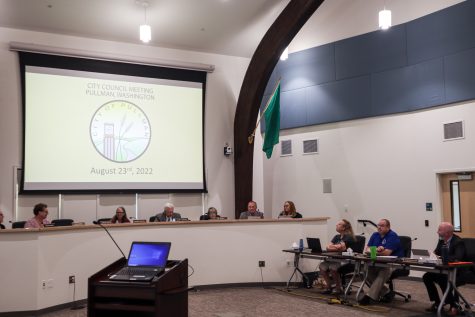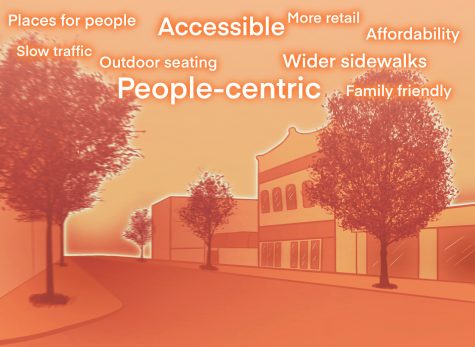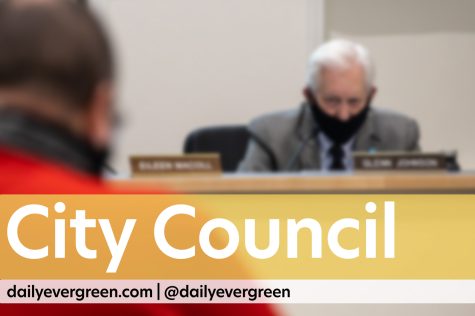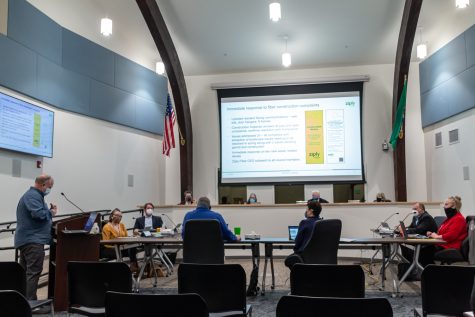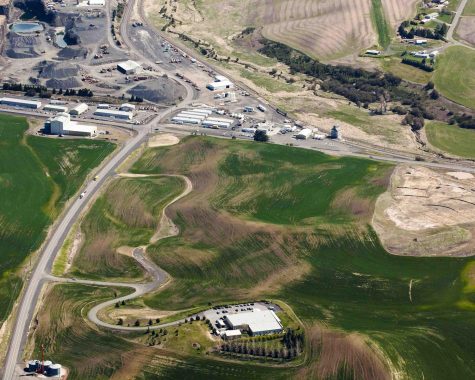City commissioners vote no on rezoning
Public voices what is mostly opposition to housing proposal, which would increase the housing density on Military Hill
The proposed developments of a zone change and a student housing development would take place on Military Hill.
August 27, 2020
The Pullman Planning Commission unanimously voted Aug. 26 recommending City Council deny a rezoning request from the city planning department.
A zone change would increase the housing density on part of Military Hill from a low-density zone to a higher-density zone that could support apartments, duplexes and condominiums.
Several Pullman residents voiced their opposition during the public hearing Aug. 26. They cited noise concerns and lack of an in-depth traffic impact study as the main reasons for not wanting to change the zone.
The commission received at least 52 letters from the public voicing their opposition both to the zone change and a proposed student housing development from Gilbane Development Company.
“We feel that it’s going to lower our property values and that it’s going to create an unsafe situation,” said Pullman homeowner John E. Burns.
Proponents of the zone change said voting yes would not necessarily mean a housing development would happen. Supporters also said designating this area for student housing would increase the social and economic quality of life in Pullman.
“Students are attracted to this enclave because of its close proximity to campus and [business],” said Andrew Ang, development director of Gilbane Development Company.
Gilbane proposed a student housing apartment complex in the area in question.
“It’s about matching the zone to get the best use out of the property,” said Jennifer Hackman, interim city planner.
An R4 zone change lowers the square footage of what can be built on the property from 1,500 feet per unit to 1,000 square feet per unit, Hackman said. The zone change would also permit 44 dwellings per acre, whereas R3 zones allow for 29 dwellings per acre. The parcel of land is currently an R3 zone.
Pullman does not need to develop more apartments in that one area, Burns said, because projects to increase housing options have already been proposed and approved within the city.
Bobbie Ryder, a Pullman resident who lives in the area in question, said she wants affordable housing, not “predatory” housing.
“Around all of that low-income and senior housing, you’re looking at putting in a luxury high-rise for students,” Ryder said.
Conclusions presented after public comments found the zone change would be “inconsistent” with the goals and policies of the Pullman Comprehensive Plan and the purposes of the city’s zoning codes.
The zone change would also be “incompatible” with adjacent land uses and zoning classifications, according to the meeting conclusions.
Gilbane Development Company did not demonstrate through analysis that existing vehicle, pedestrian and bicycle traffic would not be heavily impacted, according to the meeting conclusions.

